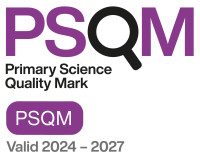Science
Science has changed our lives and is vital to the world’s future sustainability and prosperity.
Science explains the mechanics and reasoning behind the daily function of complex systems, including the human body.
At Bilton Grange our Science curriculum teaches children essential aspects of the knowledge, methods, processes and uses of science. Through carefully planned, challenging lessons and high quality teaching we enable the children to build up a body of key foundational knowledge and concepts. They are encouraged to develop a sense of excitement and curiosity about natural phenomena and recognise the power of rational explanation. The children are encouraged to understand how science can be used to explain what is occurring, predict how things will behave, and analyse causes. Children can discover, explain and develop skills of enquiry through working scientifically.
Primary Science helps children to:
- Observe, explore and ask questions about living things, materials and phenomena.
- Work together to collect evidence to help answer questions and link this to scientific ideas and theories.
- Evaluate evidence and consider whether tests or comparisons are fair.
- Use reference materials to find out more about scientific ideas.
- Share their ideas and communicate them using scientific language, drawings, charts and tables.

The national curriculum for science aims to ensure that all pupils:
- develop scientific knowledge and conceptual understanding through the specific disciplines of biology, chemistry and physics
- develop understanding of the nature, processes and methods of science through different types of science enquiries that help them to answer scientific questions about the world around them
- are equipped with the scientific knowledge required to understand the uses and implications of science, today and for the future
We have a cross curricular themed approach that is knowledge rich, carefully building upon the children’s previous knowledge with small sequential steps.
Our approach is underpinned by the four curriculum drivers that are at the heart of everything we do.
- Collaboration
- Communication
- Creative Arts
- Community
British Values and Cultural Capital
A balance of activities will be provided to help support the learning of fundamental British values. These also support the provision for personal development and enhance children’s cultural capital within the subject.
Spiritual, Moral, Social and Cultural
Contributions to Spiritual, Moral, Social and Cultural development occur as children learn about themselves and the variation amongst individuals. They learn about health and hygiene and begin to learn about life cycles. Science provides opportunities to develop informed attitudes to many topical issues. By doing so, children can begin to develop mature, responsible opinions and values. In science, opportunities are taken to discuss aspects of environmental awareness with the aim of developing responsible attitudes to waste disposal, resource depletion, wildlife conservation.















